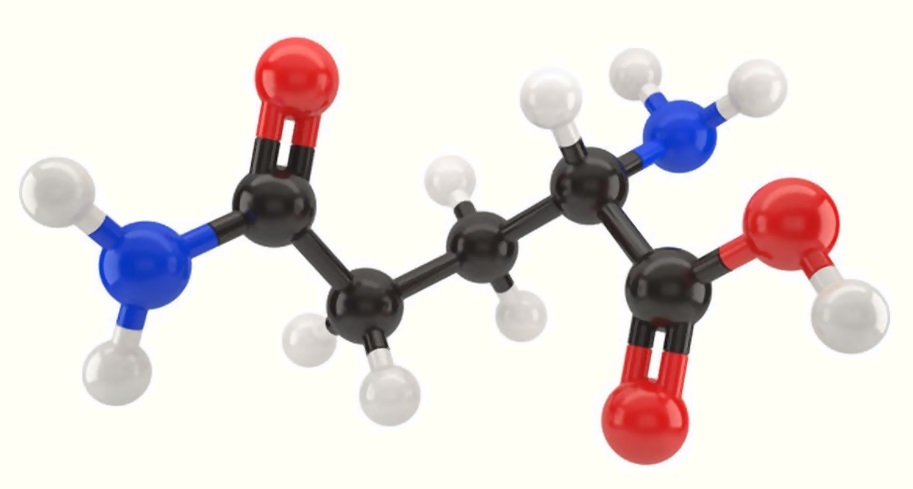Amino acids are often regarded as the building blocks of life. These small organic molecules play an essential role in various body functions, including protein synthesis, metabolism, and overall health. Understanding amino acids, their types, and their impact on your well-being is key to optimizing your health. In this article, we will explore the importance of amino acids, their sources, and how they contribute to bodily functions.
Table of Contents
What Are Amino Acids?
Amino acids are organic compounds composed of carbon, hydrogen, oxygen, and nitrogen. They are fundamental to the formation of proteins, which are critical for nearly every biological process. An amino acid consists of a central carbon atom, an amino group (NH₂), a carboxyl group (COOH), and a distinctive side chain (R group) that gives each amino acid its unique properties.
Types of Amino Acids
Amino acids can be divided into three main categories: essential, non-essential, and conditionally essential. Each category is based on how the body interacts with the amino acid and how it is obtained.
Essential Amino Acids
Essential amino acids are those that the body cannot synthesize on its own. Therefore, they must be obtained through food. There are nine essential amino acids:
- Histidine
- Isoleucine
- Leucine
- Lysine
- Methionine
- Phenylalanine
- Threonine
- Tryptophan
- Valine
These amino acids are necessary for protein synthesis and support a range of bodily functions such as immune system health, energy production, and mood regulation.
Non-Essential Amino Acids
Non-essential amino acids are those that the body can produce on its own, even if they are not consumed through food. Examples include:
- Alanine
- Asparagine
- Glutamic acid
- Serine
Though these amino acids are not required in the diet, they still play vital roles in processes like metabolism and neurotransmitter function.
Conditionally Essential Amino Acids
Under certain circumstances, such as during illness, stress, or injury, the body may not produce enough of some amino acids. These amino acids become conditionally essential. Examples include:
- Arginine
- Glutamine
- Tyrosine
- Cysteine
The Crucial Functions of Amino Acids
Amino acids are involved in a wide range of bodily processes. Here’s how they contribute to maintaining optimal health:
1. Protein Synthesis
Proteins are made up of long chains of amino acids. These proteins are essential for cell structure, enzyme function, immune response, and tissue repair. Without amino acids, the body would be unable to produce the necessary proteins for life.
2. Energy Production
When carbohydrates and fats are unavailable, amino acids can be broken down to produce energy. This process is especially important during prolonged physical activity or when the body is in a state of fasting.
3. Neurotransmitter Production
Amino acids are precursors to several neurotransmitters, which are chemicals that help transmit signals between nerve cells. For example, tryptophan is a precursor to serotonin, which affects mood, while tyrosine contributes to dopamine production, which impacts motivation and pleasure.
4. Immune System Health
Certain amino acids, like glutamine and arginine, are crucial for maintaining a strong immune system. They help produce the cells necessary for immune responses, reducing susceptibility to illness and supporting recovery.
Amino Acid-Rich Foods
The body requires a diverse range of amino acids, and a varied diet helps ensure you obtain them all. Here’s a breakdown of some common food sources of amino acids:
Animal-Based Sources
- Meat and Poultry – Beef, chicken, and turkey are rich in essential amino acids.
- Fish – Salmon, mackerel, and tuna provide a high-quality source of amino acids.
- Eggs – A complete protein, eggs contain all nine essential amino acids.
- Dairy Products – Milk, cheese, and yogurt are excellent sources of both essential and non-essential amino acids.
Plant-Based Sources
- Legumes – Lentils, chickpeas, and beans are rich in amino acids, particularly lysine.
- Nuts and Seeds – Almonds, peanuts, chia seeds, and flaxseeds provide amino acids and healthy fats.
- Whole Grains – Quinoa, rice, and oats contribute to amino acid intake and fiber.
- Soy Products – Tofu, tempeh, and edamame are complete plant proteins containing all nine essential amino acids.
Benefits of Amino Acids for Health
Amino acids have various roles in maintaining and improving health. Let’s explore some of their key benefits:
1. Supports Muscle Growth and Repair
Amino acids, especially branched-chain amino acids (BCAAs) such as leucine, valine, and isoleucine, are vital for muscle recovery. BCAAs stimulate muscle protein synthesis and reduce muscle soreness after exercise.
2. Improves Cognitive Function
Amino acids like tyrosine and tryptophan are involved in the production of neurotransmitters like dopamine and serotonin, which influence mood, memory, and mental clarity.
3. Boosts Immune Function
Amino acids like glutamine play a critical role in immune system function. They help produce white blood cells, which are essential for fighting off infections.
4. Regulates Blood Sugar Levels
Amino acids, including glycine, have been shown to help regulate blood sugar by improving insulin sensitivity and promoting glucose metabolism.
The Role of Amino Acid Supplements
In some cases, individuals may need to supplement their diet with amino acids to support health, fitness, or medical recovery. Common amino acid supplements include:
1. Branched-Chain Amino Acids (BCAAs)
BCAAs are commonly used by athletes and fitness enthusiasts to improve performance, reduce muscle soreness, and enhance muscle recovery.
2. L-Glutamine
Often used during illness or recovery, L-glutamine supplements support immune health and tissue repair.
3. L-Tryptophan
This amino acid is a precursor to serotonin and can be used to improve mood and sleep quality.
4. L-Arginine
L-arginine supports blood circulation by producing nitric oxide, which helps dilate blood vessels and improve blood flow.
Amino Acid Deficiency and Its Impact
An amino acid deficiency can lead to a variety of health issues. Here’s a look at some common problems:
1. Muscle Loss
Without sufficient amino acids, the body cannot effectively build and repair muscle tissue, leading to muscle weakness and wasting.
2. Weak Immune System
Inadequate amino acids can impair the production of immune cells, leaving the body more vulnerable to infections.
3. Mood Disorders
A shortage of amino acids like tryptophan and tyrosine can lead to mood imbalances, anxiety, and depression.
Conclusion
Amino acids are vital to maintaining overall health, from supporting muscle growth to enhancing brain function. By ensuring your diet is rich in amino acids, whether through animal or plant-based foods, you are investing in your body’s ability to perform essential functions. If needed, amino acid supplements can provide an additional boost, particularly for athletes or those recovering from illness. Whether you are looking to improve your athletic performance, mental clarity, or overall health, amino acids are an indispensable part of the equation.
By understanding the importance of these building blocks, you can make informed dietary choices to support your long-term health.


